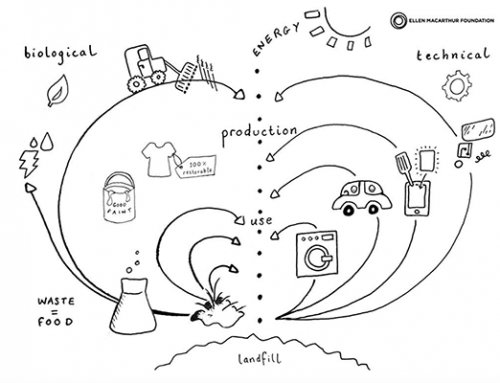No matter which role you have, there is always the chance to have a positive impact
According to a study from World Economic Forum, Sustainability Manager is a meaningful example of a job that was not existing 10 years ago. There is no hidden story, sustainability is becoming a more and more recurrent topic in the Business World. Even in the most conservative industries Sustainability departments increase in size and importance; if not for seeking competitive advantage, for regulatory reasons as well as for the rising community and society pressure. Everyone could acknowledge that.
Even though Sustainability is seen as a very relevant business aspect by many large companies, in most cases the only activity owned and managed by sustainability departments is the reporting. Don’t get us wrong, sustainability reporting is pivotal and disclosure is a big incentive (if not a law obligation) to start tracking corporate sustainability performance and to try improving it over the time. Still, this is not the game changing way of working, firms should look for, in order to solve environmental and social issues.
The good news for every employee interested in making a positive contribution to the society (s)he lives in, is that not only Sustainability departments have the power to get the things done right. The way you shape products, the business model you choose, how the supply chain is designed or even how you advertise and consume services or goods: everything can make a certain proposition a little more sustainable.
Here are some examples:
- Executives and business leaders, literally shape the road companies run on. It comes without saying that the direction you choose for the firm as well as the example you give to your employees and partners will have a huge impact on the company culture. Companies like Patagonia and Unilever, well-known for their sustainability mindset spread across all departments, owe a lot to their key executives, like Yvon Chouinard and Paul Paulman, who always strive to for the long term value creation.
- Finance employees have a crucial role as well especially in blue chips firm. Listed companies are often driven by short term objectives: to keep stock prices high and make investors happy, long term goals, as the environmental and social ones, are sometimes sacrificed. Therefore is essential that finance people, usually responsible also for short term targets (as quarterly sales and market shares), adopt a balanced perspective, flagging any potential issues that a short-term mindset could provoke on long term value creation for the far-reaching stakeholders network.
- Innovation can shape the world that will come. The elements scientists and innovators need to consider to create an environmentally sound proposition are many: the material they decide to use should come from certified sources; the refurbishment of products or the reuse of components will depend on the initial design; etc. Tight budget or financial resource constraints are not an excuse for not seeking for sustainable business model which, actually, in some industries already have proven to deliver better financial results.
- New talents and students that enter the job markets are looking for more than a monthly salary; they seek for a purpose and a way to contribute to a better present and future. And this is exactly what recruiters and HR people should aim for. This doesn’t mean that or young professionals, should only go in companies with a proven sustainability track record. This means that millennials should talk loud about their will to make an impact and that the HRs should encourage them.
These meant to be just few examples that many of you might relate with your everyday corporate life; of course there are many more and different ones , but the main message is that there is always a way to make a positive impact! Therefore, go for it, think out of the box whenever necessary, be the game changer if needed!



![Ecosia it! [4min. reading time]](https://www.habits.ninja/wp-content/uploads/ecosia-logo-500x383.png)
![Building trust: why consumers should shift towards environmentally friendly corporations [7min. reading time]](https://www.habits.ninja/wp-content/uploads/environmental-awareness-679668_640-500x383.jpg)












